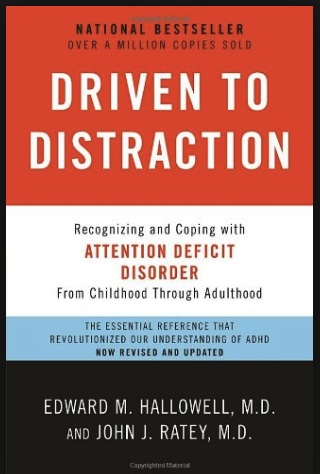
NEW SMYRNA BEACH -- Many people believe that ADHD is a problem seen only in childhood that children "grow out of." Yet, about half of those who had attention deficit hyperactivity disorder in childhood continue to have it into adulthood.
The inattentiveness and difficulty finishing tasks that made it tough for children to sit still in school can evolve into self-esteem issues, trouble holding down a job, and substance abuse problems.
These symptoms of adult ADHD can also put a real strain on relationships. How Does ADHD affect relationships? The hallmark symptoms of ADHD are forgetfulness, inattentiveness, difficulty completing tasks, and impulsivity. These symptoms can all do major damage on relationships.
Here are some typical problems you might face if you or your partner has ADHD:
• Difficulty listening and paying attention - An individual with ADHD may appear to zone out or talk out of turn, making it difficult to communicate. It can also cause the partner to feel as though what he or she has to say doesn't matter or isn't valued.
• Trouble completing tasks - ADHD can lead to poor organizational skills and forgetfulness. A man with ADHD may miss his wife's birthday or their wedding anniversary, or may forget to stop at the store on the way home from work as his wife had asked. This forgetfulness may make his wife feel hurt and think that her husband doesn't care, when he's actually forgotten because he has trouble staying on top of things.
That same inability to finish tasks may translate into a lack of commitment when it comes to marriage or other relationships. Examples:
• Inability to handle responsibilities - Someone with ADHD might forget to pay the bills, neglect to clear a dangerous pile of branches from the backyard or leave a toxic cleaner on the sink while children are playing nearby.
• Impulsive behavior - People with ADHD constantly need stimulation, and may fail to think through the consequences of their actions. This can lead to reckless, irresponsible behaviors.
• Emotional overreaction - Someone with ADHD may lose his or her temper easily, leading to major misunderstandings. Arguments can quickly spiral out of control, because the person with ADHD is unable to talk through issues calmly.
ADHD can destroy your marriage or relationship if you don't get the appropriate diagnosis and treatment.
How Can Someone with ADHD Get Help for Relationship Issues?
The first step is to treat the ADHD symptoms that are interfering with your relationship. If you haven't already been diagnosed, see a mental health professional such as a counselor, psychologist or psychiatrist. Many of the same treatments that work in children such as stimulant medications, counseling, and behavioral therapy, can also help adults with ADHD improve their focus and deal with relationship issues.
Marriage or couples therapy can help you and your partner better understand one another, and may help heal any rifts that have opened in your relationship as a result of ADHD.
Marriage or couples therapy can help you and your partner better understand one another, and may help heal any rifts that have opened in your relationship as a result of ADHD.
Some strategies to help ADHD-related relationship problems include the following:
• Make to-do lists of everything from daily responsibilities to items you need from the store. Also keep a calendar of important dates and deadlines.
• Ask the partner with ADHD to repeat back any requests, to make sure he or she understands what is being asked.
• Simplify your life by cleaning up clutter around the house and only attempting to accomplish a small number of tasks each day or week.
• Get into a routine -- for example, go through your checkbook once a week to see how much money you've spentor plan the entire week's meals every Sunday night.
One of the books we frequently recommend to patients is "Driven to Distraction." You can also call the office here at the New Smyrna Beach Counseling Center and set an appointment and one of our providers can help you understand how ADHD may be having an impact in your life and relationship.
FAST FACTS: More on the book: Driven to Distraction
 Driven to Distraction is a book by Edward Hallowell and John Ratey which investigates the nature of Attention Deficit Disorder (ADD). The authors discuss ADHD from a medical perspective, describing it as a genetic neurological disorder.
Driven to Distraction is a book by Edward Hallowell and John Ratey which investigates the nature of Attention Deficit Disorder (ADD). The authors discuss ADHD from a medical perspective, describing it as a genetic neurological disorder.